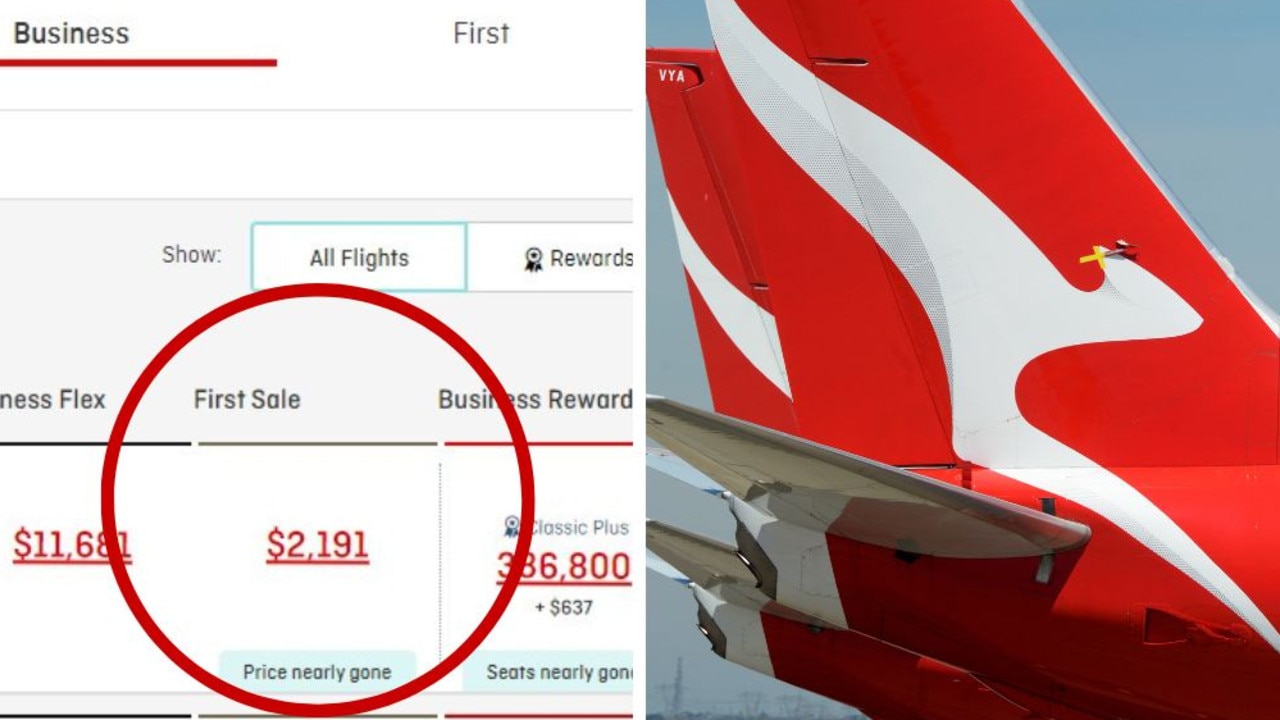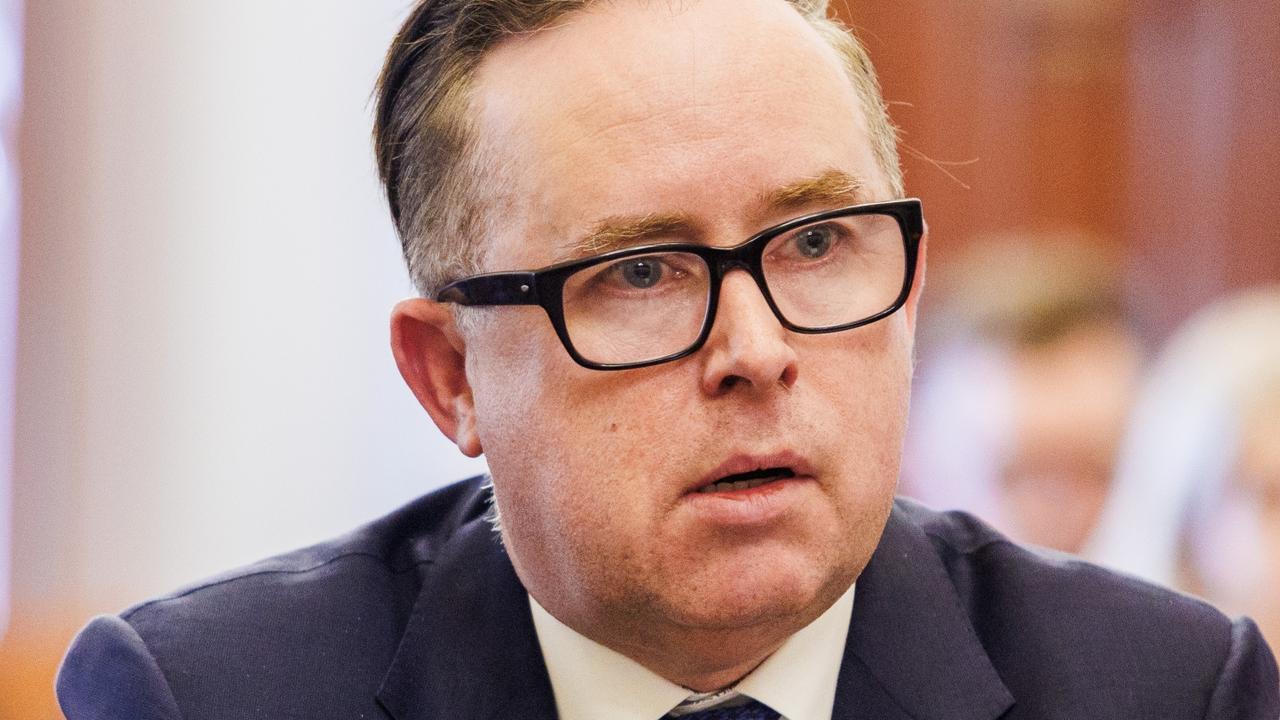Coronavirus Australia: Why closing borders could help economy
The economic impact of border closures has been seen as potentially catastrophic, but there could be a surprising $18 billion boost in it for us.
Not surprising, but still shocking: Australians spend so much money on holidays that closing the borders could turn out to be good for our economy.
According to the Commonwealth Bank, Australians spend $38 billion on overseas holidays every year – far more than foreigners spend holidaying here.
“International border closures will hurt Australian businesses that rely on foreign tourists but the overall macro-economic picture is far less damaging in 2020,” CBA’s head of Australian economics Gareth Aird wrote in a note to clients this week. “Border closures mean there is no leakage in spending now offshore.”
Commonwealth Bank estimates we gain a massive $18 billion surplus just from shutting down overseas travel.
“We estimate that over 2020 the Australian economy will miss out on approximately $20 billion in foreign spending due to the international border closures. But working the other way is $38 billion that we estimate would have been spent offshore that will no longer leave Australia.”
There is no question Australians are addicted to overseas travel. We made nearly 10 million overseas trips in 2019. As the next graph shows, we have very strong levels of inbound tourism. Foreigners love to come here – over 750,000 of them show up every month on average. But since 2008 we like to go abroad even more, with almost a million Aussies flying away each month.
RELATED: ‘Crazy’: Australia’s pandemic payday
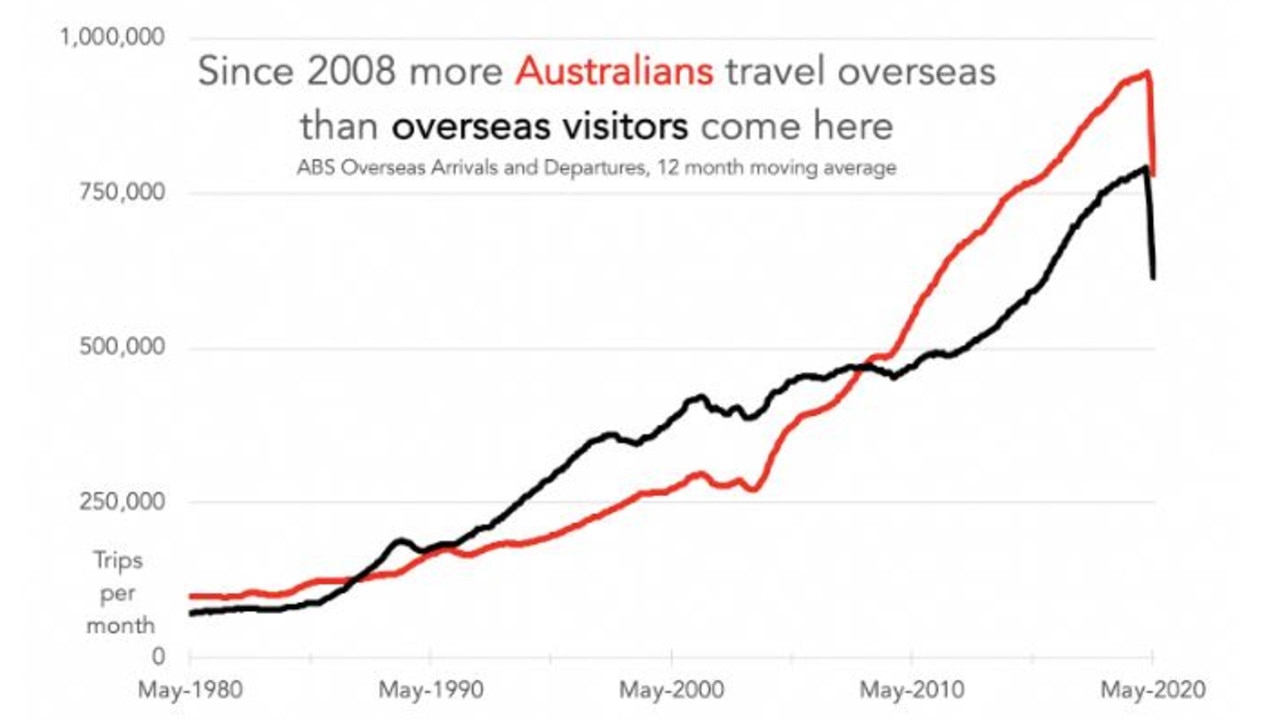
Of course, the pure numbers of people travelling is not the only factor that creates the travel spending gap. It is also about time spent. When Aussies go overseas, we go for long trips. Often between two weeks and a month. But when foreigners come here, they tend to make more of a flying visit, staying one to two weeks, or even less.
This is partly because we have good annual leave provisions (more time off than the Americans) but also because people visit multiple countries on a trip. The total length of a holiday is often more than the amount of time spent in any one country. The combined effect of both lower visitor numbers and shorter time spent is that foreigners spend much less money here than we spend abroad. In fact, it’s about 50 per cent less. In 2020-21, capturing Australians’ travel spending is a big opportunity.
“From a pure level of expenditure in the economy, if Australians can spend half of what they would have spent overseas in 2019 domestically then the gap is plugged,” Mr Aird wrote.
Inbound tourism counts as an export, and exports add directly to Australian GDP. We sell Australian-made goods and services to foreigners and that adds to our national income. Outbound tourism, by contrast, counts as an import. Australian money is spent on foreign goods and services, which subtracts from our national income.
RELATED: Economic risk of Victoria’s ‘second wave’
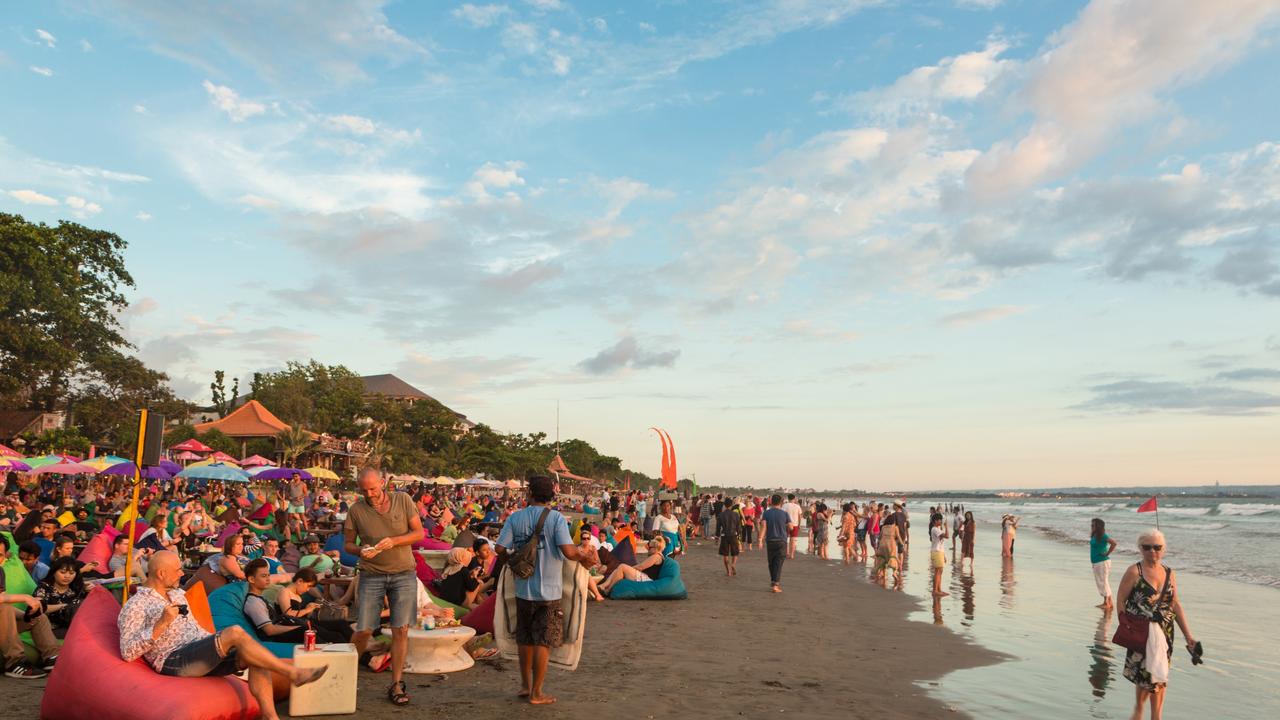
So what happens to this surplus money now that we aren’t travelling? Will Aussies spend the money they would have spent in Bali or New Zealand in Australia? Or will we save it? This is a big question facing the Australian economy. If we spend that money here it will prop up local jobs, get us out of recession faster and help speed the recovery.
HOLIDAY IN QUEENSLAND?
Regional Australia could be due for its best time in a long time. All those Victorians spending a cold winter under lockdown will be bursting at the seams to visit Byron Bay and Broome once state borders open up. However places with very high dependence on foreign visitors, for example, city centre hotels, might not find enough Aussie guests to substitute for the foreign guests they used to attract.
RELATED: Economic ‘bloodbath’ coming in 100 days
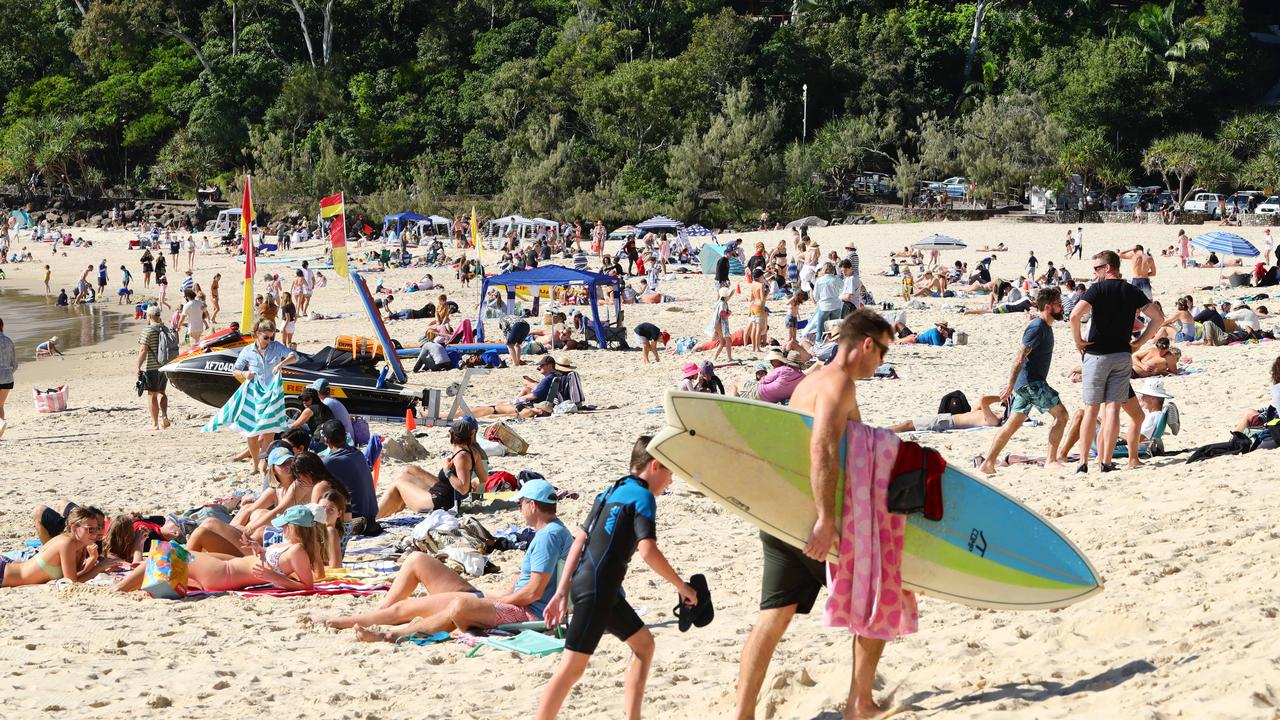
Domestic tourism is vital for the recovery. But we need to accept that not all the spending that would have gone on foreign tourism will go on domestic tourism. How many Aussies will go to the Gold Coast instead of Bali? How many will go to Tasmania instead of New Zealand? Domestic travel can be expensive compared to overseas. A hotel in Sydney costs about as much as one in New York, and taxis in Australia cost a fortune.
Luckily if our holiday budgets are spent on other things, that can help the economy too. Buy garden stuff at Bunnings? A fridge at Harvey Norman? Get braces for your kid’s teeth? Whatever it is, if that spending is redirected instead of saved, the economy can benefit.
I’ve already seen one data point that suggests Aussies are redirecting their luxury spending: Sales of Mercedes-Benz cars hit their highest ever level in June. In the middle of a recession! It is pretty surprising, but it’s not an anomaly. Sales of BMW, Audi and Lexus also hit record highs. Some of that money leaks back to car makers in Germany or Japan, but some of it stays in Australia with the car dealer and the logistics operators.
The luxury car sales boom shows that without overseas travel there is a lot of potential for new spending in other areas. Aussie companies just need to be smart and try to win it. If they do, we can all benefit from a stronger economy.
Jason Murphy is an economist | @jasemurphy. He is the author of the book Incentivology.



